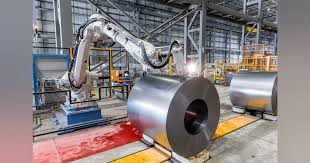President Joe Biden has reaffirmed his earlier promise to prevent the acquisition of Steeltown USA’s most illustrious steel company by rejecting the roughly $15 billion proposed agreement for Nippon Steel of Japan to acquire Pittsburgh-based U.S. Steel.
In a statement released Friday morning, Biden stated, “To continue leading the fight on behalf of America’s national interests, we need major U.S. companies representing the major share of US steelmaking capacity.”
His choice follows the Committee on Foreign Investment in the United States, or CFIUS, sending Biden a long-awaited report on the merger last month after failing to agree on the deal’s potential national security implications. He had fifteen days to make up his mind.
Under federal law, the president has the authority to suggest that the committee, which is led by Treasury Secretary Janet Yellen and consists of other Cabinet members, prohibit a transaction.
Some government agencies represented on the panel were dubious that permitting a Japanese business to acquire an American-owned steelmaker would pose national security threats.
The decision, which might harm ties between the United States and Japan—America’s largest ally in Asia—comes only weeks before the Democratic president is scheduled to step down. The largest foreign holder of U.S. debt is Japan.
The United Steelworkers, who were worried about the company’s financial transparency and whether it would uphold current labor agreements or eliminate employment, supported Biden when he first spoke out against the merger in March of last year.
In a March statement, Biden—who was still running for reelection to the presidency before withdrawing from the race—stated that “it is important that we maintain strong American steel companies powered by American steelworkers.”
“For over a century, U.S. Steel has been a recognizable American steel company, and it must continue to be a domestically owned and operated American steel company.”
In addition to opposing the acquisition, President-elect Donald Trump pledged in December on his Truth Social platform to thwart the transaction and employ tariffs and tax breaks to expand the business.
Biden’s decision to halt the sale was praised by Steelworkers President David McCall on Friday, who described it as the “right move for our members and our national security.”
In a statement released Friday, McCall reaffirmed his long-standing doubts about Nippon Steel’s ability to act as an honest middleman for American national trade interests, claiming that “Nippon has proven itself to be a serial trade cheater.”
“It would have given it the chance to further undermine our trade system from within and jeopardize our ability to meet our national security and critical infrastructure needs if we had allowed it to buy U.S. Steel,” McCall stated.
McCall maintained that U.S. Steel possesses the financial resources necessary to build a robust and resilient business.
Laptops 1000Nippon Steel for its part, stated that it is in the best position to assist American steel in competing in a Chinese-dominated economy and to spend billions on facilities represented by United Steelworkers, including the company’s outdated blast furnaces.
It promised not to import steel slabs that would compete with the blast furnaces and to defend American steel in trade disputes.
In December 2023, Nippon Steel declared its intention to purchase the steel manufacturer for $14.9 billion in debt and cash, promising to retain the Pittsburgh headquarters and the U.S. Steel identity.
Nevertheless, its proposal sparked questions about the deal’s potential effects on supply chains, unionized workers, and American national security.
The announcement came amid renewed political support for rebuilding America’s manufacturing sector and followed a long period of protectionist U.S. tariffs that analysts say have helped reinvigorate domestic steel.
Nippon Steel undertook a public relations campaign to win over supporters, including giving $5,000 in closing bonuses to U.S. Steel employees, an almost $100 million expense.
A rising number of conservatives and business groups like the U.S. Chamber had publicly favored the plan, as Nippon Steel began to win over some Steelworkers union members and mayors in communities near its blast furnaces in Pennsylvania and Indiana.
In the Wall Street Journal last month, Mike Pompeo, Trump’s first secretary of state, referred to a possible rejection of the deal as “shortsighted.”
“The agreement would improve the competitiveness of the American steel industry, benefit U.S. Steel’s employees and their communities, and fortify the company’s current operations and production capacity,” he wrote.

















